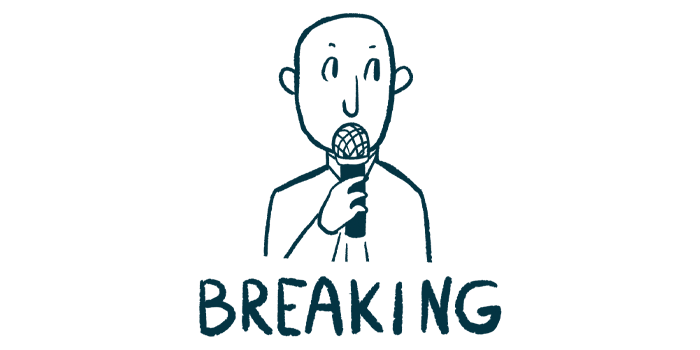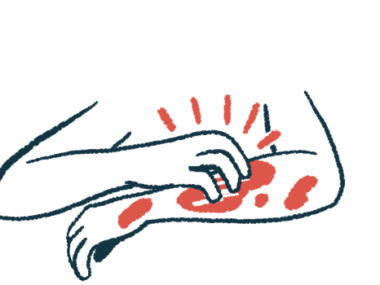FDA Extends Its Review Period of Gene Therapy Gel Vyjuvek for DEB
FDA sets new deadline of May 19 for Krystal Biotech's application
Written by |

The U.S. Food and Drug Administration (FDA) has delayed by three months its review deadline for Krystal Biotech’s gene therapy gel Vyjuvek (beremagene geperpavec) for dystrophic epidermolysis bullosa (DEB).
The decision on Krystal’s application for approval of Vyjuvek, previously expected by mid-February this year, has been extended to May 19, with discussions on labeling proposals to be held no later than April 20.
This extension was prompted by the change of a hardware unit in the manufacturing process of Vyjuvek. Although the new unit did not affect processing parameters or product contact materials, the FDA regarded the replacement as a major amendment to Krystal’s application that required extra time to review.
“While we are disappointed that this change was viewed as a major amendment, we are committed to working with the FDA as it completes its review of [Vyjuvek’s] application,” Krish S. Krishnan, chairman and CEO of Krystal, said in a company press release.
Vyjuvek granted regulatory statuses to speed its development in U.S. and Europe
Vyjuvek has been granted several regulatory statuses in the U.S. and Europe to help speed up its development and regulatory review as a therapy for DEB. These include fast track and rare pediatric designations and regenerative medicine advanced therapy status by the FDA, priority medicines eligibility by the European Medicines Agency (EMA), and orphan drug designation by both agencies.
Krystal has also received positive feedback from the EMA Pediatric Committee on its path toward submitting a marketing authorization application for the approval of Vyjuvek as a DEB therapy in Europe.
DEB, one of the main types of epidermolysis bullosa, is a rare disease characterized by fragile skin and mucosal tissues, which blister and tear from minor friction or impact. It is caused by mutations in the COL7A1 gene, which is responsible for the production of a part of type VII collagen (COL7), a protein that is essential for holding skin layers together.
Vyjuvek (formerly B-VEC) is a noninvasive therapy that uses a modified and harmless virus as a carrier to deliver two working copies of COL7A1 to skin cells with the aim of restoring COL7 production, thus helping in wound healing and preventing blistering. The re-dosable topical gel can be applied directly to skin wounds during routine bandage changes.
The efficacy and safety of Vyjuvek was assessed against a placebo in the Phase 1/2 GEM-1 trial (NCT03536143) and the Phase 3 GEM-3 study (NCT04491604), both lasting about six months. In total, the trials enrolled 40 children and adults, with most participants having recessive DEB, a severe form of the disease in which patients carry two mutated copies of COL7A1.
Each participant had one wound treated with Vyjuvek and one treated with a placebo gel. In GEM-1, the gels were mostly applied with bandage changes, every two or three days, while in GEM-3, the gels were applied once per week.
Vyjuvek considered to be safe and well-tolerated in trials
In GEM-1, all but one of the wounds treated with Vyjuvek closed and remained healed for at least three months, contrasting with variable rates of healing and re-blistering with the placebo gel. Biopsies of the treated wounds showed that COL7 was present and in its correct location as early as nine days after the start of treatment.
Vyjuvek treatment in GEM-3 led to a significantly higher proportion of completely healed wounds than the placebo at three months (71% vs. 20%) and six months (67% vs. 22%).
In both trials, Vyjuvek was considered generally safe and well-tolerated. No serious treatment-related adverse events, or side effects, were reported.
The FDA has decided that no advisory committee meeting or risk evaluation and mitigation strategies program is needed for Vyjuvek’s approval application. Krystal has stated that all preapproval inspections of the clinical, manufacturing, and testing sites were completed.
“We will continue our commercial readiness efforts and upon approval bring this important treatment to DEB patients as soon as possible,” Krishnan said.
An open-label extension study (NCT04917874) is currently ongoing to test Vyjuvek in patients 6 months and older over a longer period, about a year and a half. The study is open to participants who completed GEM-3, as well as individuals who meet all inclusion criteria but were not able to participate in the Phase 3 trial.







